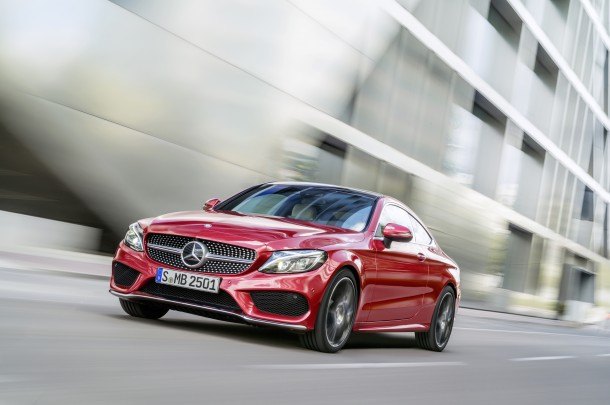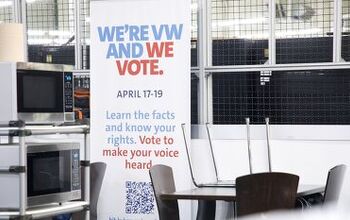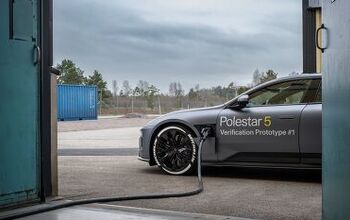It Didn't Take Long for Another Automaker to Screw Up a Marketing Ploy

Think back. Waaay back — to 11:19 a.m.
In that article, we chronicled Fiat Chrysler’s deft handling (and perhaps, planning) of a historical Super Bowl Ram commercial that sparked a fierce social media backlash, all thanks to the spot’s use of dialogue from Martin Luther King, Jr.
We told you, all that time ago, and with all the certainty of someone knowing the sun will rise again, that the next automaker might not find itself so unscatched by a marketing blunder (if indeed you view the Ram ad as a blunder). Well, that time has come. Mercedes-Benz just offended a whole country.
The country in question is every automaker’s retirement plan: China. With its rising middle class growing ever-fonder of private vehicle ownership, China is fertile ground for automakers — especially premium, status-signalling brands.
According to Reuters, Mercedes-Benz decided to start the week with an inspirational (aspirational, really) “Monday Motivation” post on Instagram featuring a photo of a white C-Series coupe sitting on a windswept beach. And what better way to appear deep than pasting a quote from a spiritual leader?
“Look at the situations from all angles, and you will become more open.”
Wise words, indeed. And how about that Benz? Boy howdy…
Unfortunately for the German automaker, the quote originated from the Dalai Lama — spiritual leader of the Tibetan people, lover of robes, Nobel Peace Prize winner, and noted bad joke recipient. He also led a rebellion against China in 1959, seeking independence for his Tibetan homeland. The rebellion’s failure led to his exile by the Chinese government, which still rules the disputed territory.
To make a long story short, to many Chinese, the Dalai Lama is not the inspiration figure celebrated in Western circles. After seeing the post, Bloomberg reports, China’s Communist Party-run Global Times newspaper slammed the automaker.
Quick, to the damage control boat!
“We will promptly take steps to deepen our understanding of Chinese culture and values, our international staff included, to help standardize our actions to ensure this sort of issue doesn’t happen again,” the automaker said in a statement, not long after deleting the offending post.
On its official Chinese Weibo social media account, Mercedes-Benz wrote, “We fully understand this incident has hurt the feelings of Chinese people, including Mercedes-Benz’s employees in China,” adding that the post contained “extremely mistaken information.”
Sure, China can be criticized for a good number of issues, including the ruling party’s shocking history of human rights abuses, but this is business. When wooing the world’s hottest emerging car market, your grovelling game had better be as good as your marketing game.
[Image: Daimler AG]

More by Steph Willems
Latest Car Reviews
Read moreLatest Product Reviews
Read moreRecent Comments
- Probert They already have hybrids, but these won't ever be them as they are built on the modular E-GMP skateboard.
- Justin You guys still looking for that sportbak? I just saw one on the Facebook marketplace in Arizona
- 28-Cars-Later I cannot remember what happens now, but there are whiteblocks in this period which develop a "tick" like sound which indicates they are toast (maybe head gasket?). Ten or so years ago I looked at an '03 or '04 S60 (I forget why) and I brought my Volvo indy along to tell me if it was worth my time - it ticked and that's when I learned this. This XC90 is probably worth about $300 as it sits, not kidding, and it will cost you conservatively $2500 for an engine swap (all the ones I see on car-part.com have north of 130K miles starting at $1,100 and that's not including freight to a shop, shop labor, other internals to do such as timing belt while engine out etc).
- 28-Cars-Later Ford reported it lost $132,000 for each of its 10,000 electric vehicles sold in the first quarter of 2024, according to CNN. The sales were down 20 percent from the first quarter of 2023 and would “drag down earnings for the company overall.”The losses include “hundreds of millions being spent on research and development of the next generation of EVs for Ford. Those investments are years away from paying off.” [if they ever are recouped] Ford is the only major carmaker breaking out EV numbers by themselves. But other marques likely suffer similar losses. https://www.zerohedge.com/political/fords-120000-loss-vehicle-shows-california-ev-goals-are-impossible Given these facts, how did Tesla ever produce anything in volume let alone profit?
- AZFelix Let's forego all of this dilly-dallying with autonomous cars and cut right to the chase and the only real solution.


































Comments
Join the conversation
Sounds like right before Volkswagen came out with their Das Auto campaign, they had a commercial on for like two days - I saw it once - where at the end of the spot, a German voice comes on and says, "It's vot ze people vant!"
Meh, China is N Korea exceptin they buy more crap